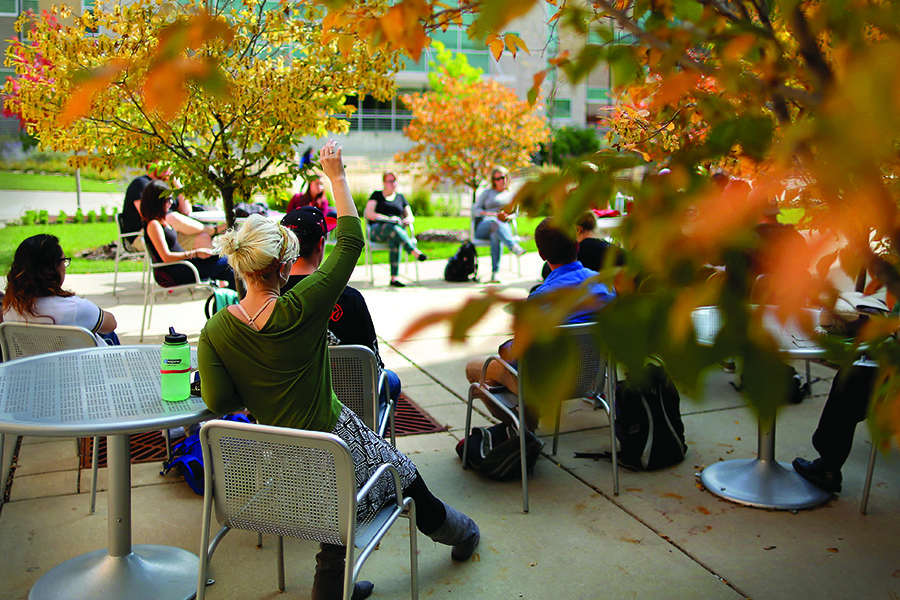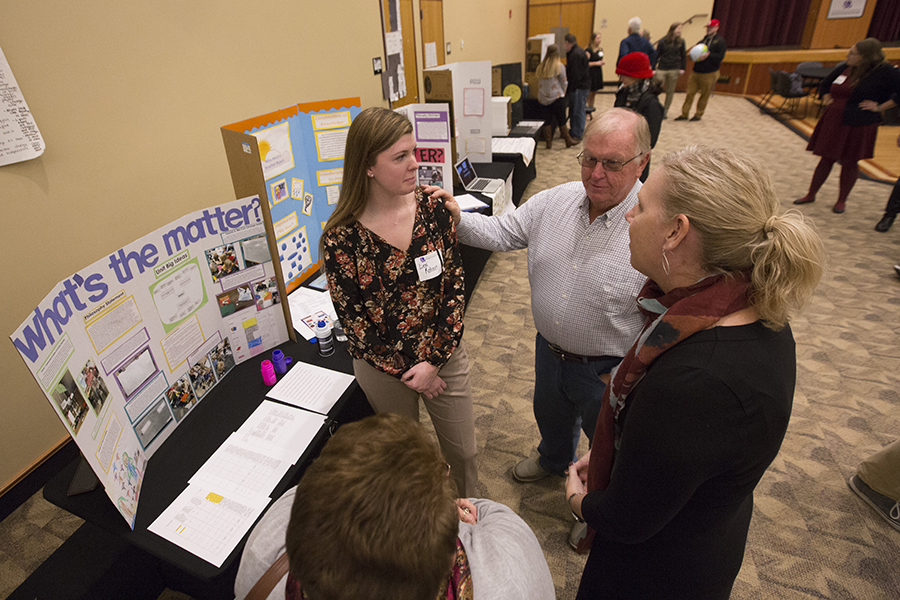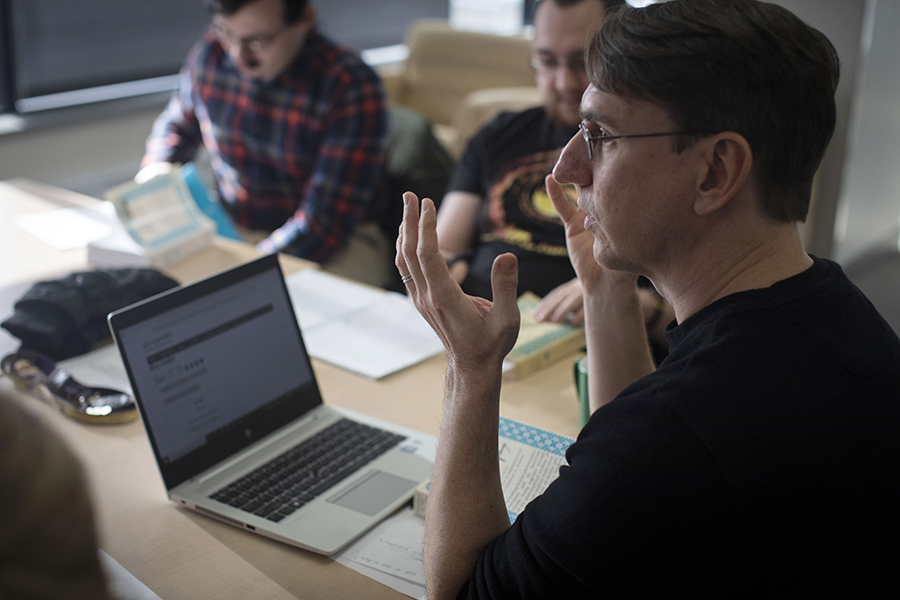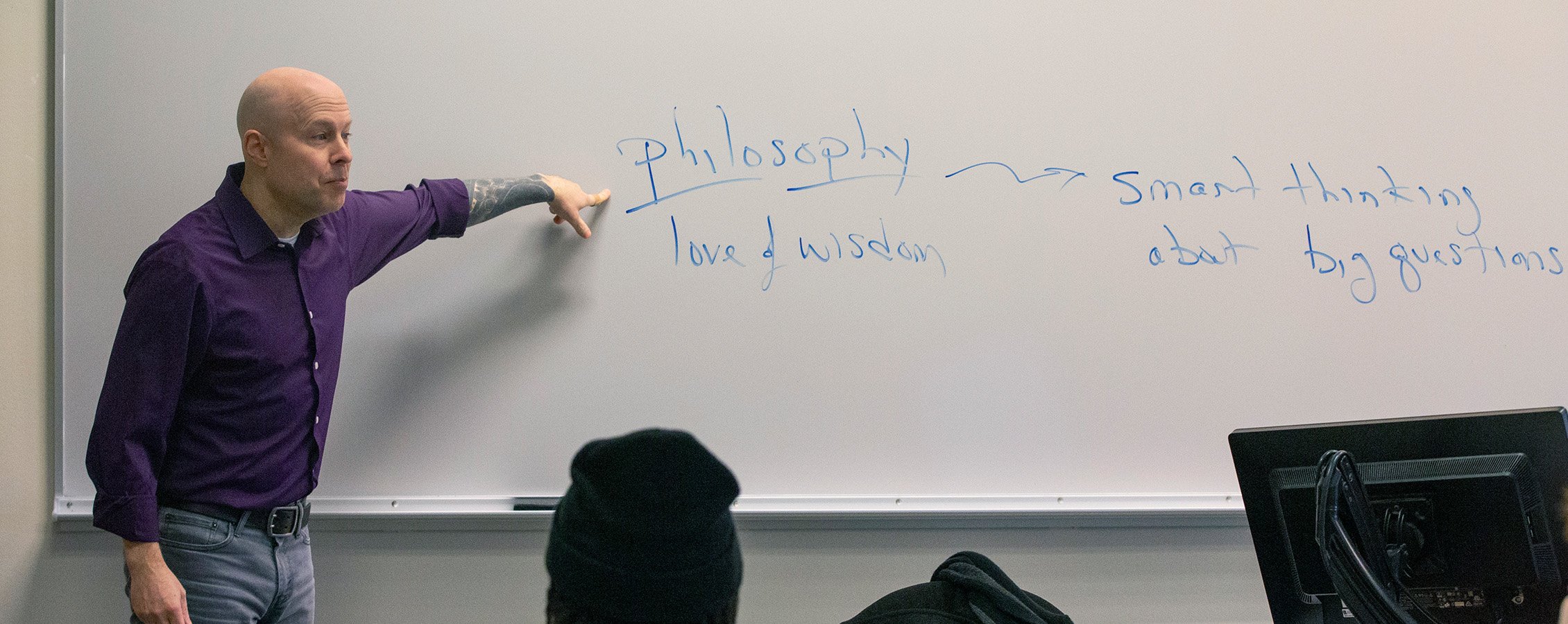DEPARTMENT OF PHILOSOPHY & RELIGIOUS STUDIES
The aim of the Philosophy & Religious Studies Department at UW-Whitewater is to foster critical thinking and appreciation in the areas of reasoning, knowledge, reality, meaning, gender and race issues, ethics, history of religions, hermeneutics, religious rituals, and sacred stories.
We currently have six faculty members, each of whom brings unique teaching, experience, and research in the attainment of our aim and goal. Our particular research emphases are in German philosophy, feminist philosophy, philosophy of race, philosophy of science, epistemology, ethics, social philosophy, aesthetics, biblical interpretation, classical Hinduism, Buddhism, and religion in the human sciences.
Contact us
David Simmons
Department Chair and Associate Professor
262-472-1232
Laurentide Hall 4207
Jeanne Quevedo
Department Assistant
262-472-1042
Laurentide Hall 4205
UW-Whitewater offers students a wide variety of scholarships, both through the university, individual colleges, and departments. The Department of Philosophy and Religious Studies has a number of scholarships and awards geared specifically toward our students, including:
- Sara Pope Scholarship
- Amy Michaels Scholarship
- Denise Meyer Scholarship
- Stephen Nonte Scholarship
More information about these and other scholarships is available through the scholarship portal.
The Department of Philosophy and Religious Studies supports a number of student clubs and organizations, including Philosophy Club.
Explore our academic programs






Interdisciplinary Ethics
Certificate (Undergraduate)The Interdisciplinary Ethics certificate provides students a strong foundation in evaluative ethics, which seeks to reason why a given action might be right or moral. Students can investigate the ethical dimensions of personal or career-related interests including, but not limited to health care, the environment, sexual ethics, social justice, business, and media.
Liberal Studies, Religious Studies and Philosophy
Major/Emphasis, Minor, Online Bachelor'sExperience college through a broad academic lens and purposeful interdisciplinary approach. Learn skills in writing, research, and communication, gain breadth of knowledge in arts, humanities, social sciences, and physical sciences, all through a lens of personal and social responsibility.
Liberal Studies (Philosophy)
Major/Emphasis, MinorEngage with complex topics and discussions surrounding all facets of life, from what it means to be human to what is reality. Philosophy as a practice seeks to sharpen your ability to reason, grasp complex concepts, find connections between ideas and develop critical thinking.
Liberal Studies (Religious Studies)
Major/EmphasisPursue your interests in religion across the world as you immerse yourself in topics in history, culture, art, literature, government, and the humanities.
Philosophy Education
MinorIf you have a passion for discussing abstract ideas surrounding the human experience and existence, consider a minor in Philosophy Education. Take courses on contemporary moral issues, ancient Greek philosophy, logic, secondary education and curriculum, and much more, which will prepare you for teaching students to analyze knowledge and to think critically.
World Religions
MinorEngage in ideas relating to the world's major religious traditions. Research the intellectual, historical, cultural, and personal dimensions of religion as they affect human life through a minor in World Religions
What does my contribution directly support?
How much money can make an impact?
Donate now to support the Department of Philosophy and Religious Studies at UW-Whitewater
If you're interested in starting a scholarship or making a pledge, please contact the UW-Whitewater Foundation, Inc at 262-472-1105 or through email at foundation@uww.edu.

